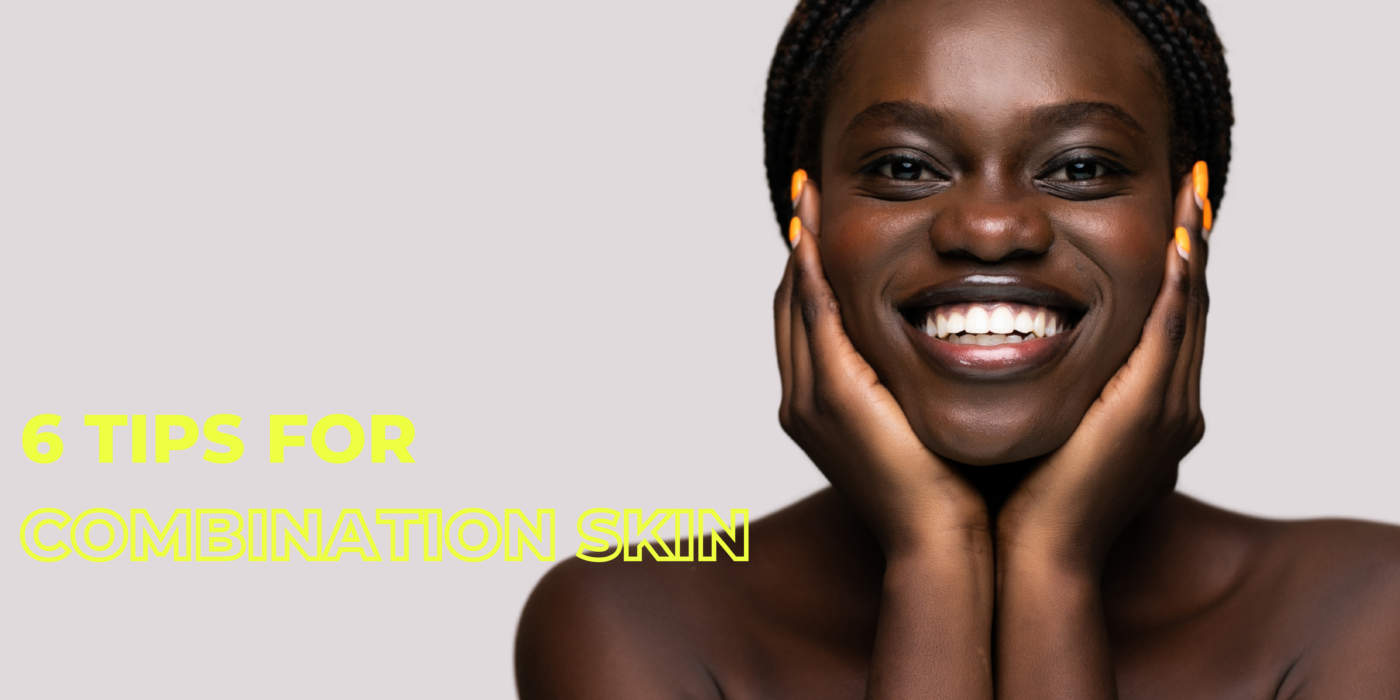Skin Care
6 Tips for combination skin
What is combination skin?
Combination skin is among the four commonly known skin types, along with normal, dry, and oily skin. When you have combination skin, parts of the face tend to be oily while other parts remain dry. It actually feels like dealing with two different skin types at once.
Caring for combination skin can be confusing, we would recommend taking our skin quiz to get a personalized skincare routine with recommended products if you’ve been finding it tricky to navigate your skincare. Alternatively, you can book a one-on-one consultation with our in-house certified skincare therapist Joyce Waiharo here.
Signs of combination skin
- Both dry and oily spots
The skin appears and feels oily around the T-zone then normal or dry around the cheeks and jawline. It’s perfectly normal to experience both ends of the spectrum when it comes to combination skin.
- Large pores on the chin, nose, and forehead
Sebum builds inside the pores due to the oil glands causing the pores to expand to account for excess oil. To reduce the appearance of pores, shop our must-have “I Am Beautiful” green tea sheet masks here.
- Mild acne
Excess oil production leads to clogged pores which in turn causes occasional whiteheads and blackheads around the T-zone while the rest of the face remains acne-free.
- Makeup looking patchy
If by around midday your makeup is slipping off your T-zone and clinging to your cheeks then you probably have combination skin. Read on for tips you can employ to manage this.
Causes of combination skin
- Environmental factors
Places that experience hot and humid climates result in the sweat glands producing more sweat which leaves the skin looking shiny around the T-zone while the opposite is true for other parts of the face.
- Genes
Combination skin and all other skin types are genetic. Less active oil glands everywhere else and super active oil glands around the T-zone are passed down.
- Hormonal influences
Sebaceous glands are sensitive to hormones. An increase in testosterone levels, in turn, increases oil levels and vice versa.
6 Tips to manage combination skin
- Build a combination skincare routine
Shop our 2-3 step routine here if you want to keep things minimal and 4-5 step skincare routine if you’re trying to go deeper with your skincare here. However, to build a routine from scratch check out our beginner’s guide here.
- Use a gentle cleanser
Switch all the harsh ingredients for gentle ingredients like Cica that soothe and calm the skin with its inflammatory and antibacterial properties. Shop our Beausta Cica Cleansing Foam to remove makeup, impurities, oil, pollutants, and waste from the skin without drying here.
- Exfoliate
Exfoliating works well for combination skin because it prevents clogged pores. Shop our Neulii exfoliating toner pads for sensitive skin here. This is a makeup must-have to make makeup glide onto the face when used in the AM and essential for deeply cleansing your skin and pores when used in the PM.
- Use a non-comedogenic moisturizer that’s perfect for all skin types
Our one-size-fits-all Neulii natural squalane desertica moisture cream is infused with moisturizing squalane and desertica which penetrate the skin and increase its moisture content without clogging pores. Shop here.
- Be on the lookout for specific ingredients
Other ingredients that work well for combination skin include hyaluronic acid, lactic acid, emollients, and antioxidants such as vitamin c. Shop our “I Am Brilliant” vitamin c masks here.
- Apply sunscreen daily
Reapply a broad-spectrum sunscreen with SPF 30+ every 2 to 3 hours.
Have any questions about combination skin? Drop them in the comments below.

Having blackheads on the cheeks that are prominent what would you recommend to use
Hi Stephany, we would recommend using ingredients such as Salicylic acid in your skincare routine to help unclog your pores. Do you exfoliate your skin?